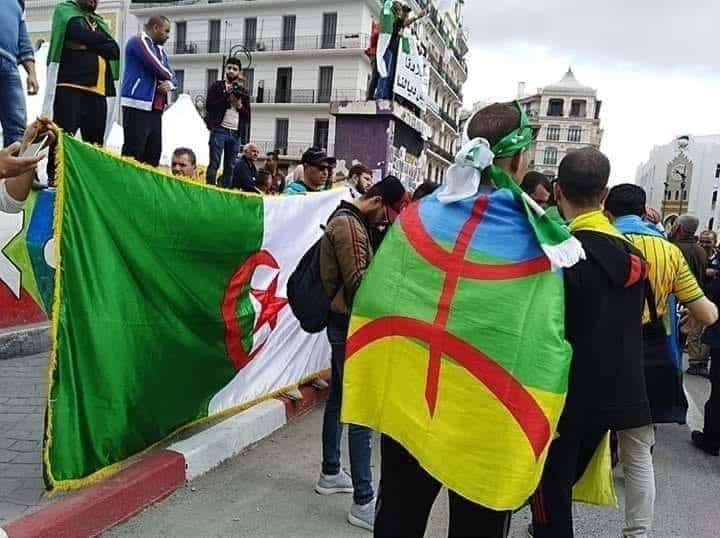Human Rights Watch (HRW) recently released a report accusing Algerian regime of escalating crackdown on peaceful protesters in Algeria especially against Amazigh activists because they were waving or carrying Amazigh flags.
Starting June 21, security forces began large-scale arrests throughout the country, targeting marchers with Amazigh flags, a symbol of the Amazigh community. About 40 protesters remain in custody, most in Algiers. All are under investigation for “harming the integrity of the national territory,” which carries sentences of up to 10 years in prison, under penal code Article 79.
“Waving a flag of an ethnic community is an act of peaceful expression protected by the International Covenant on Civil and Political Rights, which Algeria ratified in 1989, and the African Charter on Human and Peoples’ Rights. Algeria should free and drop charges against anyone arrested for possessing or waving a flag, Human Rights Watch said.
The mass arrests began when Army cheif Gaid Salah warned of “foreign parties” seeking to “infiltrate demonstrations” and “destabilize Algeria.” On June 19, he gave a public speech in which he accused “a small minority of people who bear other flags [than the Algerian flag]” of “infiltrating the protests.”
Carrying Amazigh flags and pro-Amazigh activism have been commonplace in Algeria since the early 1980s. Some activists focus on promoting Amazigh culture, while some demand greater political autonomy for the Kabyle-majority regions, and others advocate independence. Although demands for autonomy or independence have been contentious, Algerian authorities have not in recent years treated carrying an Amazigh flag as a crime.
[ads2]

